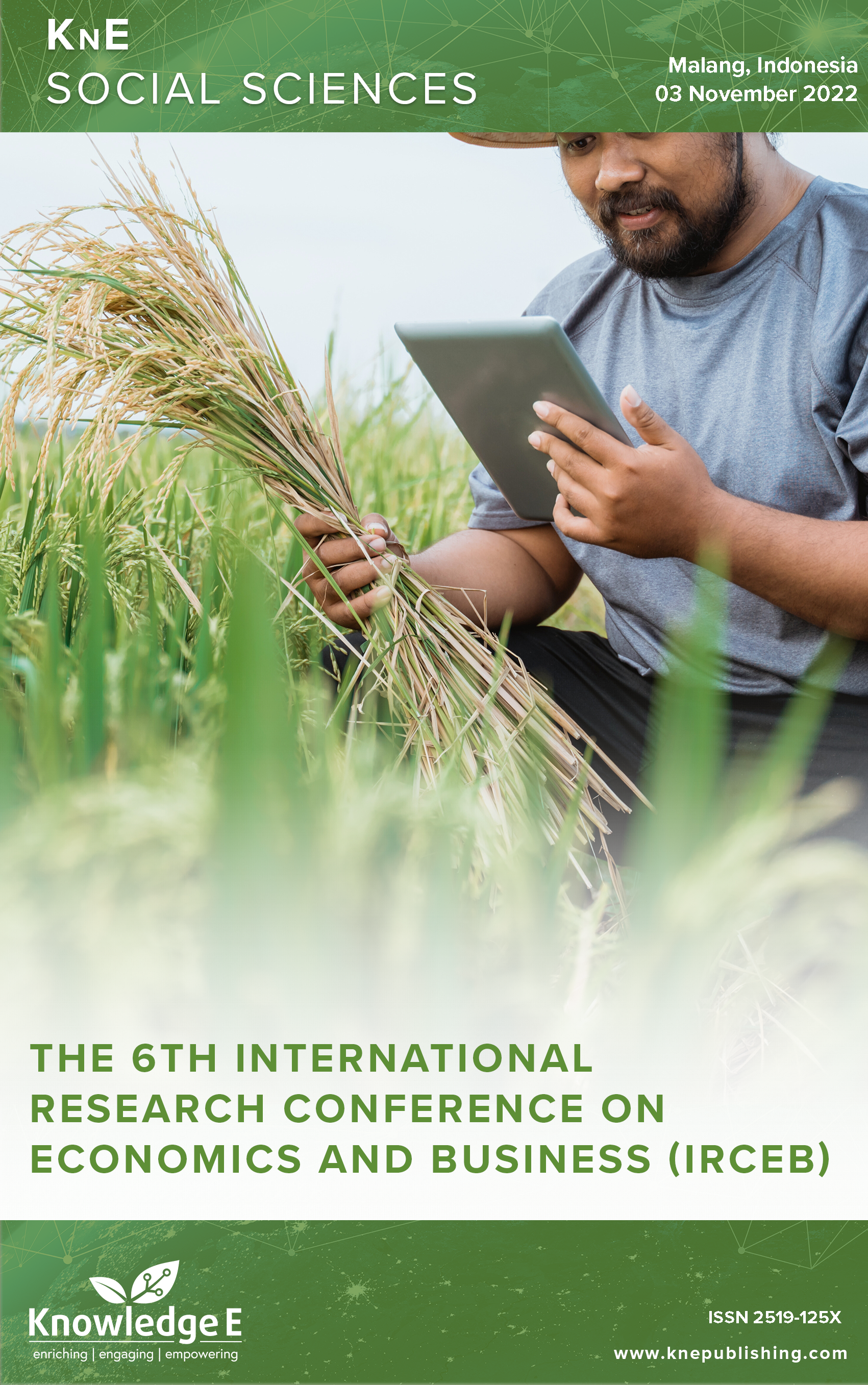The Role of Conservation Environment to Establish Sustainable Ecopreneurship Intention
DOI:
https://doi.org/10.18502/kss.v9i4.15103Abstract
The concept of green entrepreneurship combines profit-oriented business with innovative technology that can help humans reduce negative impacts on the environment. This study analyses and examines the research gap and inconsistencies between factors that influence ecopreneurship intentions through the theory of planned behavior approach. This theory states that a person intends to perform a behavior. The sample of this research is 150 students who will intend to do environmentally friendly business obtained through screening questions in the Universitas Negeri Semarang environment. The existence of the Universitas Negeri Semarang, which applies conservation insights, is appropriate to be used as a research sample. The results of the study show that the factors that influence entrepreneurial intentions have a direct effect.
Keywords: ecopreneurship intentions, entrepreneurial orientation, entrepreneurial knowledge, university environment
References
Audretsch D. Entrepreneurship research. Manage Decis. 2012;50(5):755–764. DOI: https://doi.org/10.1108/00251741211227384
Taylor DW, Walley EE. The green entrepreneur : Opportunist, Maverick or Visionary? Int J Entrep Small Bus. 2004;1(1/2):56–69. DOI: https://doi.org/10.1504/IJESB.2004.005377
Kirkwood J, Walton S, Kirkwood J, Walton S. What motivates ecopreneurs to start businesses? Int J Entrep Behav Res. 2010;16(3):204–228. DOI: https://doi.org/10.1108/13552551011042799
Maroušek J, Strunecký O, Stehel V. Biochar farming : Defining economically perspective applications. Clean Technol Environ Policy. 2019;21(7):1389–1395. DOI: https://doi.org/10.1007/s10098-019-01728-7
Szerb L. “The global entrepreneurship and development index methodology.” Summer Conf. 2010. Opening Up Innov Strateg Organ Technol Imp Coll London Bus Sch; 2010.
Tan H, Chen S, Shi Q, Wang L. Development of green campus in China. J Clean Prod. 2014;64:646–653. DOI: https://doi.org/10.1016/j.jclepro.2013.10.019
Zhou X, Yan J, Zhu J, Cai P. Survey of energy consumption and energy conservation measures for colleges and universities in Guangdong province. Energy Build. 2013;66:112–118. DOI: https://doi.org/10.1016/j.enbuild.2013.07.055
Fayolle A, Liñán F. The future of research on entrepreneurial intentions ?. J Bus Res. 2014;67(5):663–666. DOI: https://doi.org/10.1016/j.jbusres.2013.11.024
Tung LOC. “The impact of entrepreneurship education on entrepreneurial intention of engineering students.” City Univ. Hongkong, 2011.
Hernández-Perlines MF, Cisneros I. “The role of environment in sustainable entrepreneurial orientation . The case of family firms.” 2018. https://doi.org/10.3390/su10062037 DOI: https://doi.org/10.3390/su10062037
Kuratko DF. Entrepreneurial leadership in the 21 st Century. J Leadersh Organ Stud. 2007;13(4):1–11. DOI: https://doi.org/10.1177/10717919070130040201
Roxas B. “Effects of entrepreneurial knowledge on entrepreneurial intentions: A longitudinal study of selected South- east Asian business students.” J Educ Work. February 2015;37–41. https://doi.org/10.1080/13639080.2012.760191 DOI: https://doi.org/10.1080/13639080.2012.760191
Oosterbeek HMVPÃ, Ijsselstein A. “The impact of entrepreneurship education on entrepreneurship skills”. Eur Econ Rev. 2010;54:442–454. DOI: https://doi.org/10.1016/j.euroecorev.2009.08.002
Ajzen I. “Belief, attitude, intention and behaviour: An introduction to theory and research.” no. May 1975, 2015.
Ii JA, Fritz DA, Davis PS. Entrepreneurial orientation and the performance of religious congregations as predicted by rational choice theory. 2010;(610):219–248. DOI: https://doi.org/10.1111/j.1540-6520.2009.00315.x
Covin G. “The influence of organization structure on the utility of an entrepreneurial top management style.” J Manag Stud. May, 1988. https://doi.org/10.1111/j.1467- 6486.1988.tb00033.x
Miller D. The correlates of entrepreneurship in three types of firms. Manage Sci. 1983;29(May):2014. DOI: https://doi.org/10.1287/mnsc.29.7.770
Wu W, Chang M, Chen C. “Promoting innovation through the accumulation of intellectual capital, social capital, and entrepreneurial orientation.” J Compil. 2008;265–277. DOI: https://doi.org/10.1111/1467-9914.00120-i1
Widding LØ. Building entrepreneurial knowledge reservoirs. J Small Bus Enterprise Dev. 2005;12(4):595–612. DOI: https://doi.org/10.1108/14626000510628252
Rosdiana L, Subekti H, Setiawan B. Strengthening students ’ characters and ecopreneurship through science, environment, technology, and society course. J. Pendidik. IPA Indones. 2018;7(2):162–171. DOI: https://doi.org/10.15294/jpii.v7i2.14338
Fiet JO. The pedagogical side of entrepreneurship theory. J Bus Venturing. 2000;9026(99):101–117. DOI: https://doi.org/10.1016/S0883-9026(99)00042-7
Hughes M, Morgan RE. Deconstructing the relationship between entrepreneurial orientation and business performance at the embryonic stage of firm growth ?. Ind Mark Manage. 2007;36(5):651–661. DOI: https://doi.org/10.1016/j.indmarman.2006.04.003
Hermínio G, Marcondes S. Effects of entrepreneurial characteristics and university environment on entrepreneurial intention. 2018. pp. 226–248. DOI: https://doi.org/10.1590/1982-7849rac2018170133
Hair J, Black W, Babin B, Anderson R. “Multivariate data analysis: A global perspective.” in Multivariate Data Analysis: A Global Perspective, 2010.

